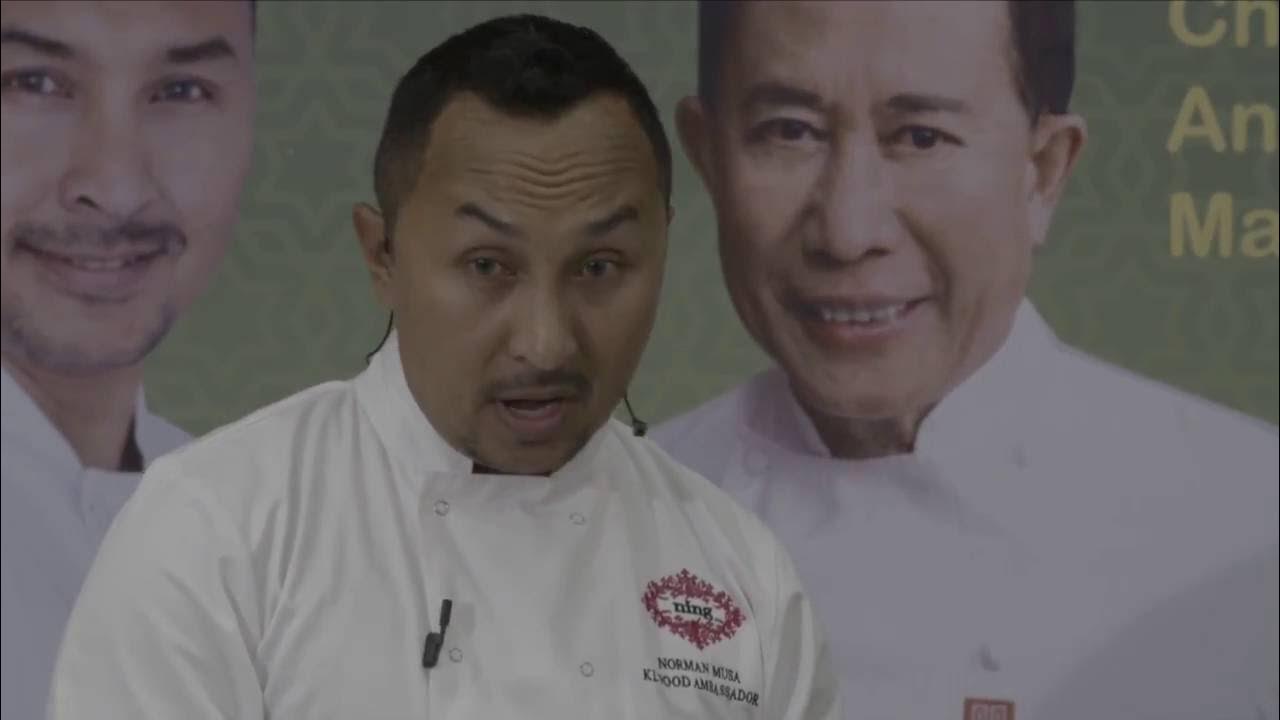
Chamberlains of London – Chef Norman Musa has become a household name among food lovers and culinary adventurers across Europe. Born and raised in Penang, Malaysia—a city famed for its street food culture—Chef Norman made it his lifelong mission to share the vibrant, complex flavors of Malaysian cuisine with the world. His journey is not just about cooking; it’s about storytelling, cultural diplomacy, and redefining what it means to represent a nation through food. From humble beginnings to international acclaim, his rise reflects a broader appetite for authentic Southeast Asian experiences on the global culinary stage. His story has inspired a new generation of chefs in Malaysia and beyond. The multicultural richness of Malaysia is mirrored in every dish he prepares. Chef Norman doesn’t just cook food—he narrates history with every plate.
Chef Norman began his career as a quantity surveyor, not in a kitchen. He left that stable profession to follow his passion and entered the culinary world—a decision that ultimately shaped his legacy. He opened his first restaurant, Ning, in Manchester during the mid-2000s. Locals embraced the eatery for its bold, spicy dishes that evoked the flavors of distant lands.
Manchester had never experienced such cuisine. Chef Norman served authentic nasi lemak, beef rendang, and laksa daily. He introduced British diners to Malaysian spices, coconut-based gravies, and fermented ingredients. Over time, they developed a growing appreciation for these flavors. Chef Norman led that culinary shift directly and with purpose. He faced obstacles along the way. Instead of adjusting dishes to suit European palates, he chose to educate them. He kept his recipes intact and avoided Westernizing traditional flavors.
“Read about: Oteque Review: Seafood, Stillness, and the Soul of Rio”
Food has always served as a bridge between cultures. Chef Norman capitalized on this power by curating cooking classes, food festivals, and media appearances that emphasized both flavor and heritage. He published cookbooks that explained the roots of each dish. Authenticity wasn’t compromised; it was celebrated. He appeared on television networks in both Europe and Malaysia, helping to cement his reputation as a culinary ambassador. His presence on BBC’s Saturday Kitchen and various food documentary series brought Malaysian cuisine to living rooms across the UK. Chef Norman also collaborated with tourism boards and embassies to introduce Malaysian cooking to diplomatic events. It was through these events that nasi kerabu and ayam percik were introduced to European dignitaries. Traditional dishes were given the spotlight on international stages.
Malaysian cuisine is a complex blend of Malay, Chinese, Indian, and indigenous influences. Chef Norman embraces this diversity rather than simplifying it. He teaches others how to handle spices with care, how to respect traditional cooking methods, and how to balance sweet, sour, salty, and spicy in one harmonious bite. His approach is methodical yet passionate. Dishes are plated with precision but also with heart. Modern culinary techniques are used sparingly. The soul of each dish remains intact. Fusion is not the goal; elevation is. By honoring the roots of each meal, he helps others taste not just the ingredients but the identity behind them.
“Read more: Gonorrhea in Boys: A Warning Sign Not to Ignore”
Chef Norman dedicates significant energy to education. He organizes workshops and leads culinary tours in the UK, the Netherlands, and Scandinavia. Participants gain more than recipes—they absorb cultural context. They understand that sambal represents more than spice; it reflects emotion. They recognize that rice holds deeper meaning than just being a side dish; it symbolizes daily life. Chef Norman also shares many of these lessons online. He uses social media to post cooking tips, cultural insights, and behind-the-scenes moments from his travels. His digital presence brings Malaysian food to people who haven’t visited Southeast Asia. He partners with culinary schools across Europe to expand his reach. These programs introduce traditional Malaysian dishes to international curricula and inspire new culinary audiences.
Chef Norman Musa redefined how people enjoy Malaysian food abroad. He transformed it from a niche curiosity into a celebrated global cuisine. Restaurants from London to Lisbon now serve Malaysian favorites, and many chefs credit Chef Norman Musa as their gateway to these flavors. He earned culinary awards and gained official recognition for his work. Chef Norman Musa presented his culinary philosophy at gastronomy conferences and shared insights at innovation forums. Global summits on food diplomacy also invited him to speak.
The Malaysian government recognized Chef Norman Musa for promoting national culture through cuisine. Officials proposed honorary titles to honor his influence. Cultural agencies included his cookbooks in their international programs. Despite his rising global fame, Chef Norman Musa stays committed to his roots. He reminds audiences that food connects people through stories, memories, and cultural identity. Every spice, every aroma, and every burst of heat in his dishes tells a personal story of origin.